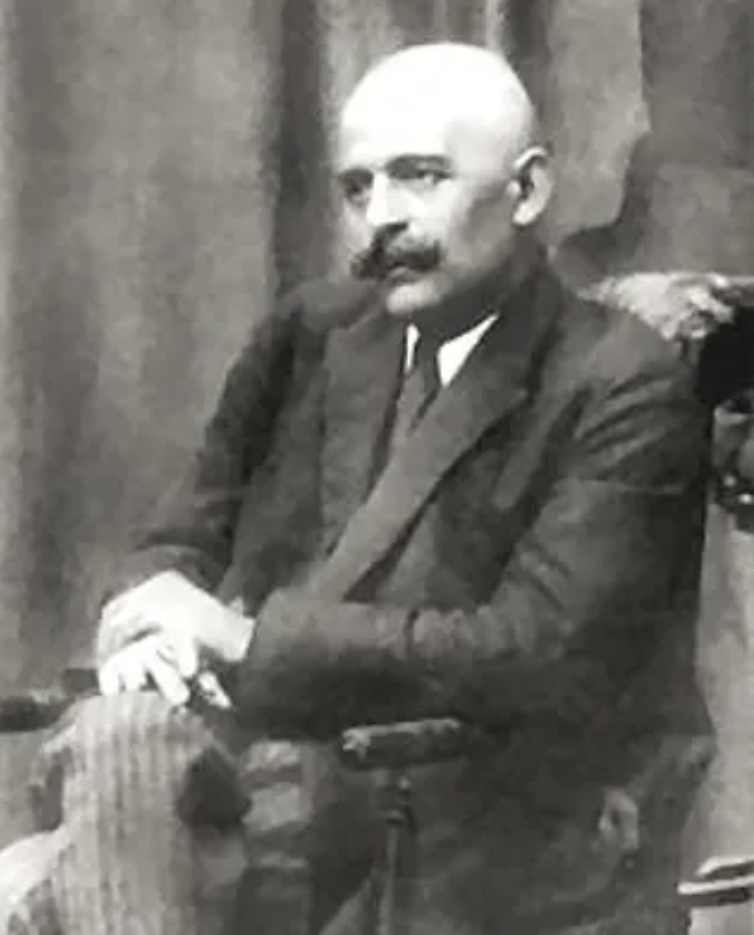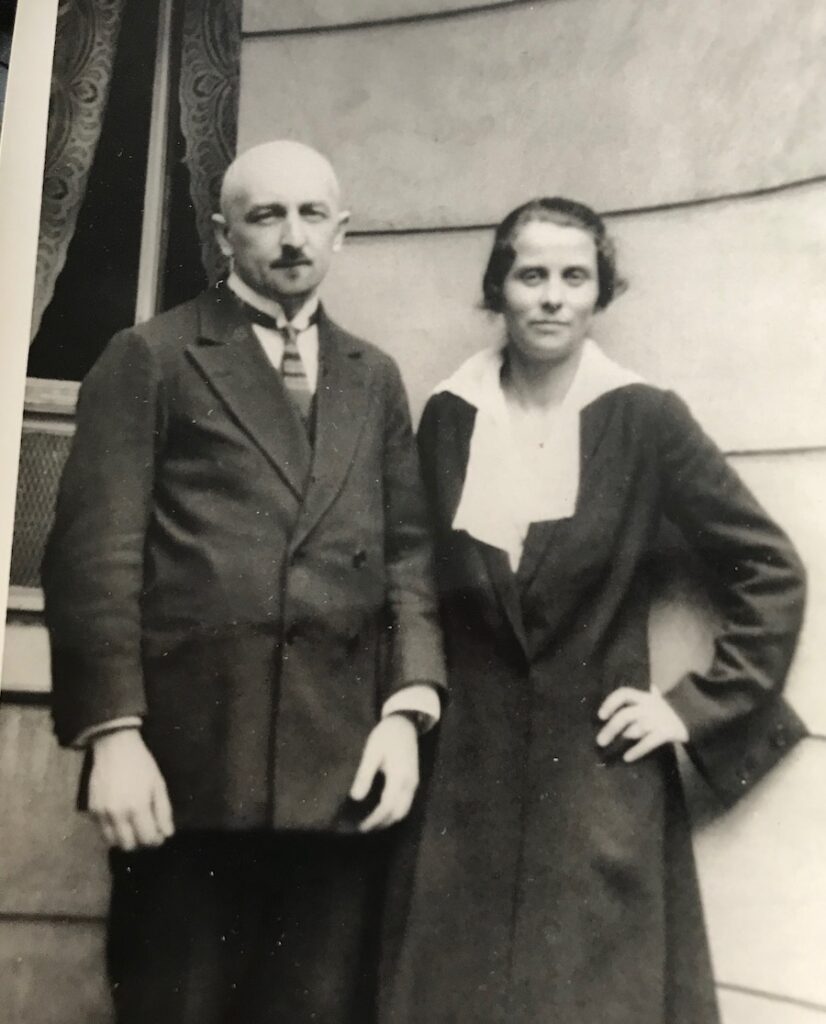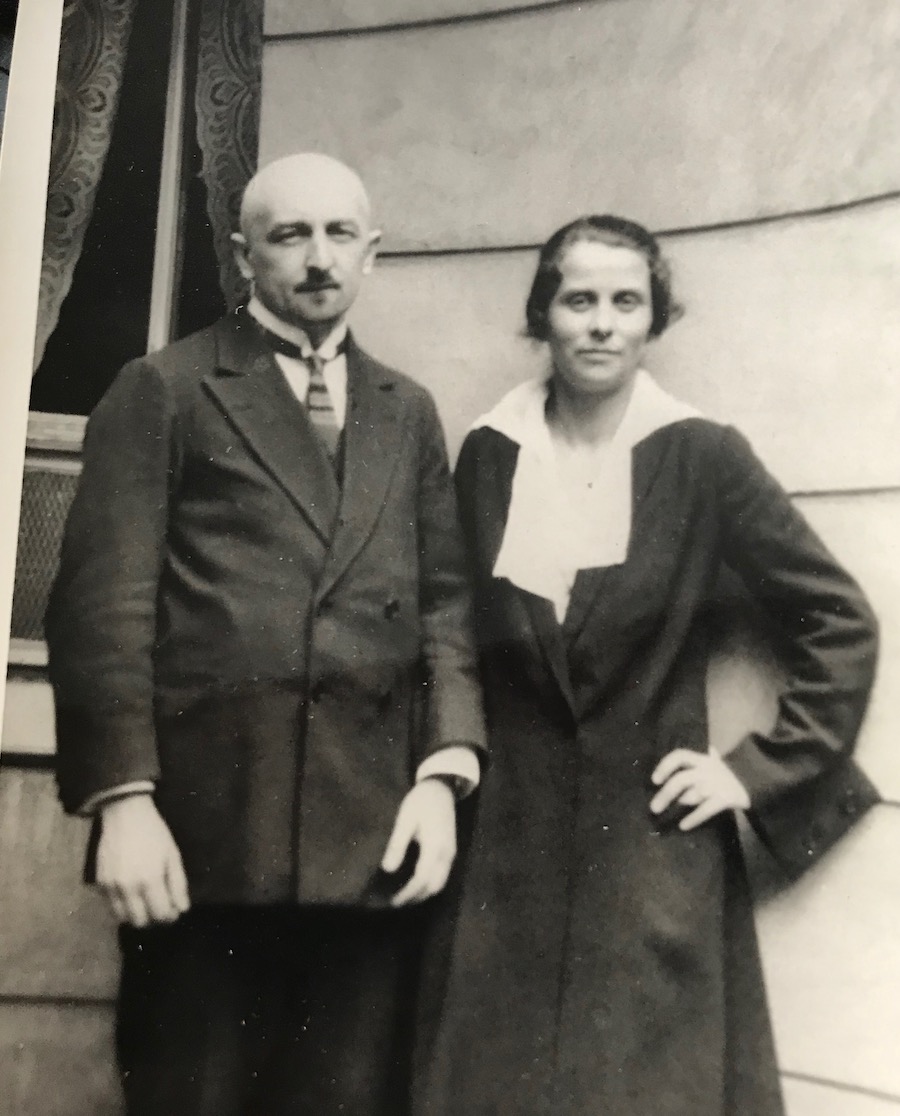Georges Ivanovitch Gurdjieff
Georges Ivanovitch Gurdjieff was born around 1870 in the Caucasus, in a culture where East meets West. He received, from a young age, a religious and scientific education which awakened in him lasting questions about the meaning and purpose of life.
Along with the Seekers of Truth (other seekers who were involved in the same search for knowledge), he travelled to remote parts of Asia and the Middle East. His search led him to isolated communities where he came into contact with an ancient knowledge about man, his possible evolution and his place in the universe—a knowledge passed on for centuries through an unbroken chain of transmission.
The ritual dances and exercises that Gurdjieff experienced in these unique places carry deep meaning, both spiritual and educational. They form an important and integral part of his teaching, to which he gave the name “Movements.”
As early as 1912, Gurdjieff brought together people interested in his search. The revolution soon forced him to leave Russia, taking with him some of his students. After a long and dangerous odyssey, they settled in France, at the Prieuré of Avon.
His life, to the extent one can glimpse it in his writings, is characterized by an exceptional intensity.


History of the Montreal group
Among G. I. Gurdjieff’s early students were Thomas de Hartmann, an already well-known Ukrainian composer, as well as his wife Olga. When the de Hartmanns fled the revolution, they followed Gurdjieff first to Georgia, then to Turkey and to Germany, finally settling in France where Gurdjieff established his Institute for the Harmonious Development of Man.
In 1950, Olga and Thomas de Hartmann left France to move to New York; in 1951, they lived temporarily in Rawdon, Québec. It was during this time that they established contacts in Montreal.
However, it was not until 1958 that a group began to study the teaching of Gurdjieff in Montreal. Soon after the death of her husband, Olga de Hartmann established the Montreal Foundation which she headed until her death in 1979.
From the outset, the group was affiliated with the International Association of the Gurdjieff Foundations (Paris, London, New York and Caracas), and continues to work in close collaboration with the groups in Ottawa, Toronto and Rochester, NY.
Georges Ivanovitch Gurdjieff
Georges Ivanovitch Gurdjieff was born around 1870 in the Caucasus, in a culture where East meets West. He received, from a young age, a religious and scientific education which awakened in him lasting questions about the meaning and purpose of life.
Along with the Seekers of Truth (other seekers who were involved in the same search for knowledge), he travelled to remote parts of Asia and the Middle East. His search led him to isolated communities where he came into contact with an ancient knowledge about man, his possible evolution and his place in the universe—a knowledge passed on for centuries through an unbroken chain of transmission.

The ritual dances and exercises that Gurdjieff experienced in these unique places carry deep meaning, both spiritual and educational. They form an important and integral part of his teaching, to which he gave the name “Movements.”
As early as 1912, Gurdjieff brought together people interested in his search. The revolution soon forced him to leave Russia, taking with him some of his students. After a long and dangerous odyssey, they settled in France, at the Prieuré of Avon.
His life, to the extent one can glimpse it in his writings, is characterized by an exceptional intensity.
History of the Montreal group
Among G. I. Gurdjieff’s early students were Thomas de Hartmann, an already well-known Ukrainian composer, as well as his wife Olga. When the de Hartmanns fled the revolution, they followed Gurdjieff first to Georgia, then to Turkey and to Germany, finally settling in France where Gurdjieff established his Institute for the Harmonious Development of Man.
In 1950, Olga and Thomas de Hartmann left France to move to New York; in 1951, they lived temporarily in Rawdon, Québec. It was during this time that they established contacts in Montreal.

However, it was not until 1958 that a group began to study the teaching of Gurdjieff in Montreal. Soon after the death of her husband, Olga de Hartmann established the Montreal Foundation which she headed until her death in 1979.
From the outset, the group was affiliated with the International Association of the Gurdjieff Foundations (Paris, London, New York and Caracas), and continues to work in close collaboration with the groups in Ottawa, Toronto and Rochester, NY.
Georges Ivanovitch Gurdjieff

Georges Ivanovitch Gurdjieff was born around 1870 in the Caucasus, in a culture where East meets West. He received, from a young age, a religious and scientific education which awakened in him lasting questions about the meaning and purpose of life.
Along with the Seekers of Truth (other seekers who were involved in the same search for knowledge), he travelled to remote parts of Asia and the Middle East. His search led him to isolated communities where he came into contact with an ancient knowledge about man, his possible evolution and his place in the universe—a knowledge passed on for centuries through an unbroken chain of transmission.
The ritual dances and exercises that Gurdjieff experienced in these unique places carry deep meaning, both spiritual and educational. They form an important and integral part of his teaching, to which he gave the name “Movements.”
As early as 1912, Gurdjieff brought together people interested in his search. The revolution soon forced him to leave Russia, taking with him some of his students. After a long and dangerous odyssey, they settled in France, at the Prieuré of Avon.
His life, to the extent one can glimpse it in his writings, is characterized by an exceptional intensity.
History of the Montreal group

Among G. I. Gurdjieff’s early students were Thomas de Hartmann, an already well-known Ukrainian composer, as well as his wife Olga. When the de Hartmanns fled the revolution, they followed Gurdjieff first to Georgia, then to Turkey and to Germany, finally settling in France where Gurdjieff established his Institute for the Harmonious Development of Man.
In 1950, Olga and Thomas de Hartmann left France to move to New York; in 1951, they lived temporarily in Rawdon, Québec. It was during this time that they established contacts in Montreal.
However, it was not until 1958 that a group began to study the teaching of Gurdjieff in Montreal. Soon after the death of her husband, Olga de Hartmann established the Montreal Foundation which she headed until her death in 1979.
From the outset, the group was affiliated with the International Association of the Gurdjieff Foundations (Paris, London, New York and Caracas), and continues to work in close collaboration with the groups in Ottawa, Toronto and Rochester, NY.